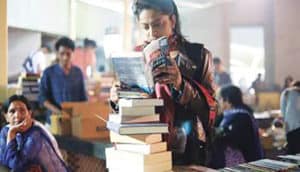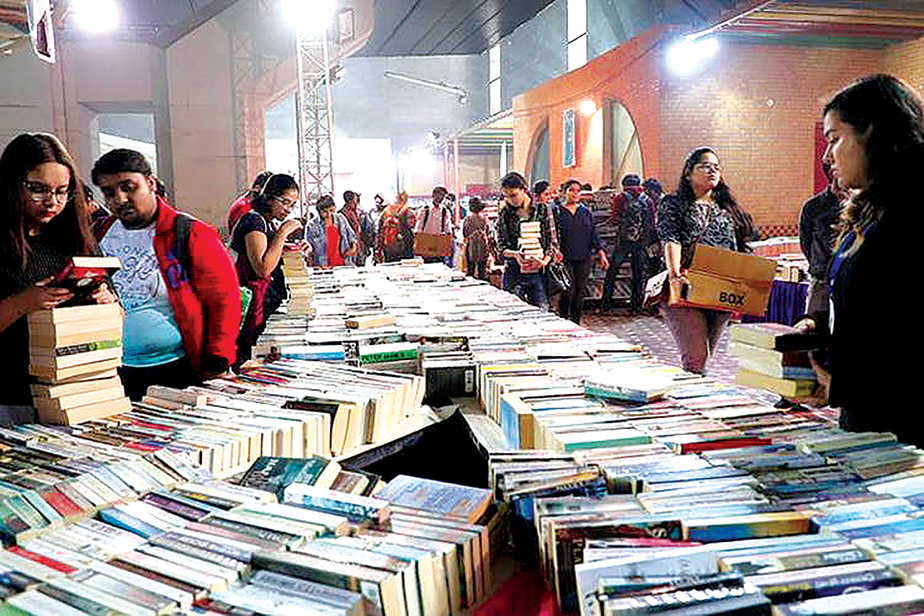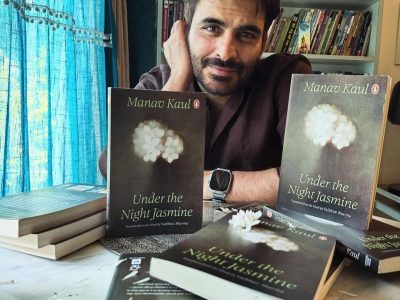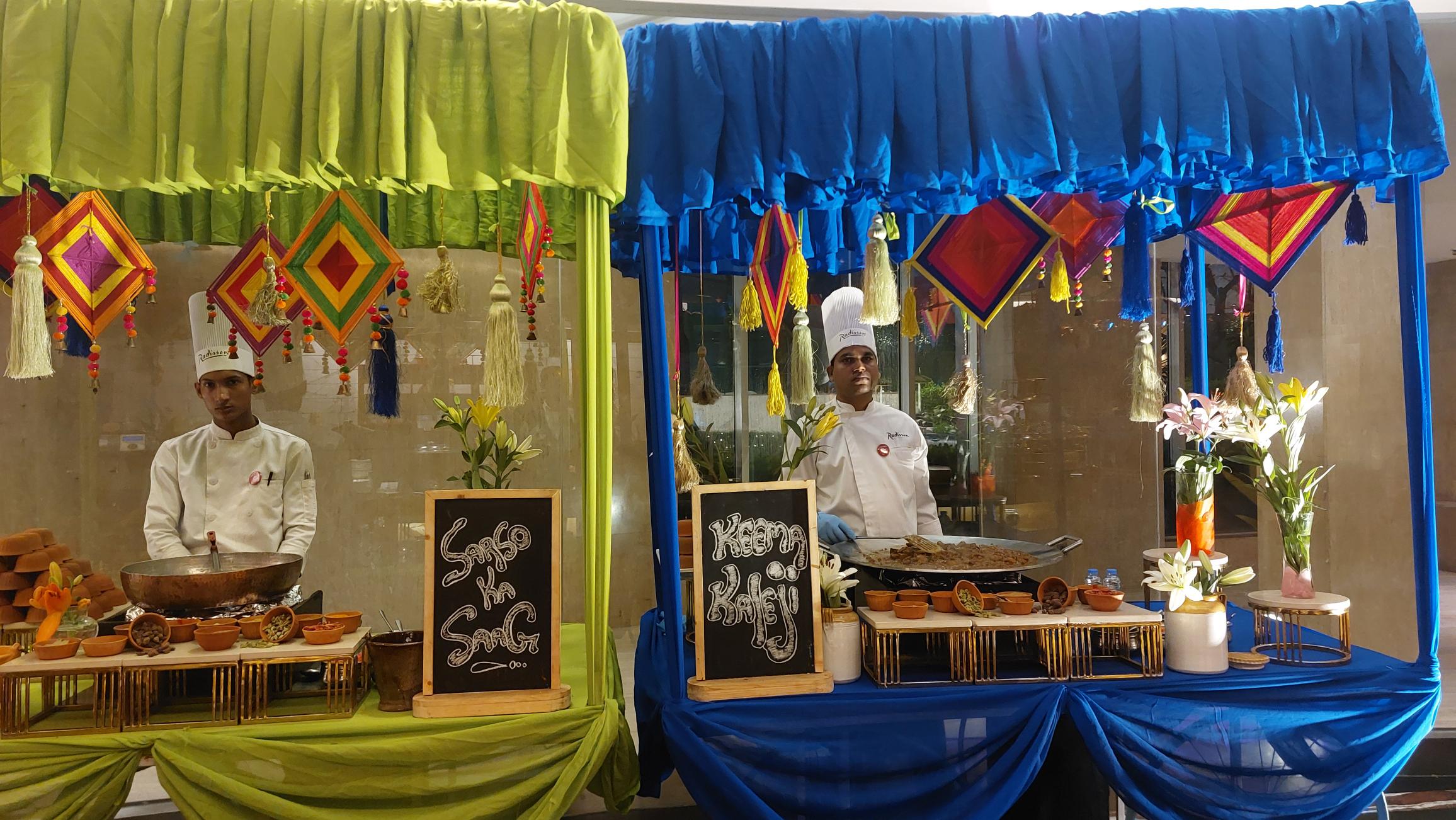Book exchange events and websites are giving avid readers the opportunity to find books they always wanted to read by creating innovative book banks
Bibliophiles will attest to how heart-wrenching it is when a book comes to an end. What feels worse is when one actually runs out of material to read or when one simply cannot get one’s hands on the book one really wants to read. For avid readers it is the very epitome of helplessness. What do you do or where do you go if you face such a situation? Phone a friend, see a movie, stare out your window, even? Book lovers have scaled lengths far and wide to figure out ways to kill time when in between books.
But it looks as though the process of reading and rooting out new books has gotten a lot more interesting.
Book exchange events and websites are cropping up to help bibliophiles in crisis. Each website and portal is coming up with new and innovative ways to create banks of books both digital and physical, to ensure books and academic reading material never go out of circulation, making sure the right book finds the right reader at the right time.
On November 2, Bookchor is holding an event in Saket (South Delhi) where from an immense collection of books, both old and new — collected through their drives and websites — can be bought by weight. Buy a box, pay by size, and pick as many books as you can fit. Sneha Kapadia, 17, got her hands on a book she had been wanting to read for years at one such event.
“There was a note scribbled on the first page,” she says adding that ‘Whoever finds this, treat my book well, and enjoy’ was written in it. “There’s something special about knowing that someone had a beautiful experience with a book and would be willing to part with it to share that experience with someone they don’t even know,” she says.
Shivangi Tripathi, Marketing Manger of Bookchor says that the response from Delhi has been quite overwhelming. “This is probably the third or fourth time that we are holding a Lock the Box event in Delhi, and within the first week of the announcement we got at least 15,000 responses. Now it’s been a month, so on an estimation I’d say it has more than doubled by now.” Bookchor, covering two to four cities a month has gained many followers, and readers in every city await the arrival of a Lock the Box event near them. Comprised entirely of second-hand books, these titles are amassed by their Sell-a-Book program where people can sell their old books to them.
Nayantara Nanda Kumar, owner of Our Sacred Space in Secunderabad, has been running an open for all reading space for a few years now. People will donate books, sometimes just one or two, and at other times, packed boxes, and enthusiasts can just walk in and read, pick up a book or even join in a discussion that is taking place if they feel like it. “We don’t sell books, it’s an entirely open space, and people can come and pick up books as they like. Often we see people who come in to take books and will come back later to donate some as well. Simply because they feel that if they take some, they should give back as well.”
BookChums, founded by Sanjay Puri, is one such portal. It allows readers to swap, share and find books from the repository of over 50,000 books. Puri is a believer in using business for good. He started the initiative so that books would be available to readers no matter where they are residing — to kids in rural areas who have access to an internet connection on a phone screen, but cannot get their hands on or even afford hard copies of books. From business and law to textbooks, cookbooks and erotica, BookChums stores it all. Simultaneously, it also offers interactions between readers and authors and also between two users.

The Reading Tub, an international readers’ portal, recently made its foray into the Indian bibliophiles’ milieu. A non-profit group that functions entirely on volunteers, focuses on getting books to at-risk environments — like children without access to books. It provides platforms for book discussions and conversations. The website helps the readers to connect and find ways to include literacy and reading in their everyday lives. It also helps educators to find the right way to navigate their classroom environment through books.
Bookfreeswap is a global book-swap portal with an easily navigable website and step-by-step interactions to help users. Users simply have to list the books they want to get rid of on their website. When another member of the community wants one of those titles, they put in the request. The shipping is paid for by the recipient and the owner has to merely pack the books and mail it to the address, wherever in the world it might be. “I once received a box from Barcelona, and I sent a couple to Canada. The pages were yellowed and one of the books was quite old,” says Vrinda. “Maybe I was just imagining it, but the pages still smelled like a different place. It was quite an experience. When you exchange books, there is a certain inexplicable understanding, right? It’s not like exchanging normal gifts or objects.”
Such programmes and initiatives are not just important for readers — keeping already printed copies in circulation saves paper and is eco-friendly. Exchanging audiobooks and hardcopies is beneficial in more ways than one. “There is no friend as loyal as a book,” said Ernest Hemingway. How beautiful is the idea of a book travelling miles and across oceans —whether it is in a paper package or through email addresses.





